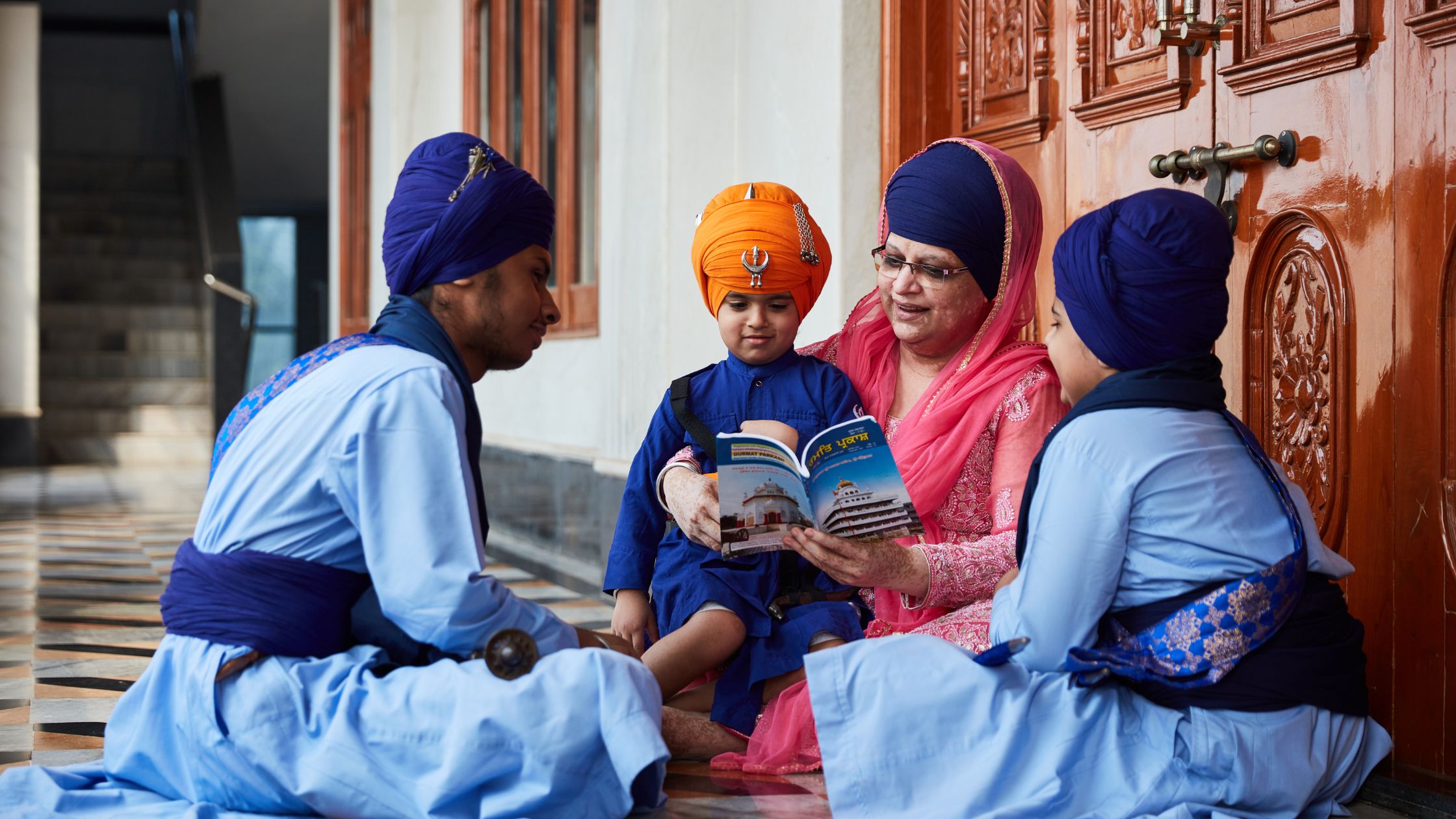
Introduction
Sikhism, a spiritual path founded in the late 15th century by Guru Nanak Dev Ji, offers a rich tapestry of wisdom and guidance through its sacred texts. These texts, or grants, serve as a beacon of light, guiding devotees on their spiritual journey. Rooted deeply in the teachings of the ten Sikh Gurus, these grants encompass a spectrum of spiritual insights, ethical guidelines, and the essence of universal brotherhood. This blog explores five essential grants in Sikhism that every seeker should delve into, to understand the profound spirituality and timeless wisdom imparted by the Sikh gurus.
Brief Background on Sikhism
Sikhism, a monotheistic religion founded in the 15th century in the Punjab region of India, emphasizes spiritual growth, equality, justice, and the importance of community service. The founders, known as the Ten Sikh Gurus, laid down the fundamental teachings of this faith. These teachings, alongside the contributions of various saints and scholars, are compiled in several holy scriptures, referred to as grants or granths.
Significance of Grants in Sikhism
The grants in Sikhism hold immense spiritual and cultural significance. They are not just books or texts; they are considered the living gurus by Sikhs after Guru Gobind Singh, the tenth Sikh Guru, proclaimed the Guru Granth Sahib as the eternal Guru. These scriptures guide Sikhs in their spiritual journey, dictate the way of living a righteous life, and offer wisdom to navigate the complexities of life. They encapsulate the teachings, hymns, and poetry composed by the Sikh Gurus and other saints, which embody the essence of Sikh spirituality and moral conduct.
The 5 Sikhism Grants You Must Read
Grant 1: Guru Granth Sahib
The Guru Granth Sahib is the most revered scripture in Sikhism, considered the eleventh and eternal Guru. This holy book comprises the teachings of the Sikh gurus, along with those of Hindu and Muslim saints, emphasizing the oneness of God and the importance of living a truthful and disciplined life. Its hymns are recited daily in Sikh households and gurdwaras (Sikh places of worship), making it an integral part of Sikh faith and practice.
Grant 2: Dasam Granth
Attributed to Guru Gobind Singh, the Dasam Granth contains a variety of texts, including religious hymns, epic narratives, and writings on secular knowledge. This grant is known for its diversity in content, ranging from devotional songs to detailed descriptions of battles. The Dasam Granth plays a crucial role in Sikhism, particularly in initiating Sikhs into the Khalsa, a community of the faithful committed to living by the high moral standards set by Guru Gobind Singh.
Grant 3: Japji Sahib
Japji Sahib is the opening chapter of the Guru Granth Sahib, composed by Guru Nanak, the founder of Sikhism. This text is a profound theological statement that sets the foundation for Sikh spirituality. It encompasses the core Sikh beliefs—the nature of God, the importance of meditation, and the path to salvation. Japji Sahib is recited by devout Sikhs every morning, serving as a daily reminder of the spiritual journey one must undertake.
Grant 4: Sunn Galaa Aakaas Kee
Sunn Galaa Aakaas Kee encompasses various interpretations that elucidate the philosophy, metaphysics, and ethics embedded in Japji Sahib. Scholars and spiritual leaders have offered diverse viewpoints on its verses, each adding layers of understanding to Guru Nanak Dev Ji’s message. This exploration reveals the emphasis on unity with the Divine, the cycle of birth and rebirth, and the importance of living a life balanced between spiritual and worldly responsibilities. The Vyakhya encourages Sikhs to contemplate and reflect on their actions and thoughts, guiding them toward spiritual awakening and enlightenment.
Grant 5: Varan Bhai Gurdas
Varan Bhai Gurdas are the writings of Bhai Gurdas, a Sikh scholar, poet, and the scribe of the original Guru Granth Sahib manuscript. His compositions are highly revered in Sikhism and considered key to understanding the teachings of the Sikh gurus. The Varan (ballads) offer insightful commentary on Sikh doctrine, the history of Sikhism, and the ethical standards expected of Sikhs. The writings of Bhai Gurdas serve as a secondary scriptural source that complements the primary teachings found in the Guru Granth Sahib.
The rich literary heritage of Sikhism, embodied in its grants, offers an in-depth understanding of the faith’s spiritual essence and ethical guidelines. These texts are not merely historical documents; they are a source of spiritual wisdom and guidance for millions around the world.








